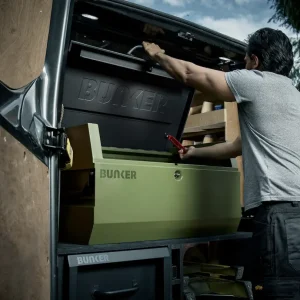Used by the council’s recycling and street cleaning teams, the 65C14G 6.5 tonne cage tipper ran exclusively on fuel supplied by liquid biomethane producer Gasrec. The gas used to produce this fuel comes from a landfill site — a renewable source of energy — in Albury, Surrey.
When compared with an equivalent diesel-powered vehicle the gas Daily showed a 30 per cent monthly fuel cost saving. What’s more, it emitted just 2,771kg of CO2 over the six months compared with the 7,295kg that would have been pumped out by a diesel. “The trial demonstrated a 62 per cent saving in CO2 and highlights the suitability of liquid biomethane as a fuel,” says Iveco UK product director, Martin Flach. “As a consequence we’re making Daily vehicles that will run on it available to operators nationwide.”
In his view liquid biomethane answers one of the difficulties some operators have experienced when they’ve tried to run vehicles on compressed natural gas. The limitations of the UK’s gas pipe infrastructure and the quality of the gas supplied mean that the product delivered often has too high a moisture content, Flach contends. This has resulted in reliability problems when it is used in commercial vehicles, he states. That’s not the case with the gas supply in mainland Europe, he claims.
Aside from bringing CO2 savings, liquid biomethane offers a number of other environmental advantages when compared with diesel, says Gasrec chief executive officer, Richard Lilleystone. “So far as emissions are concerned, every local authority in the UK would welcome a 90 per cent reduction in particulate matter, a 60 per cent reduction in nitrous oxide and a 50 per cent reduction in sulphur dioxide,” he says. “That’s what liquid biomethane gives you. You even get a noise reduction of around 30 per cent.”
Not a conversion, the gas Daily is built at Iveco’s factory in Suzzara, Italy, and has a range of up to almost 240 miles. It’s available at gross weights ranging from 3.5 to 6.5 tonnes and is not subject to the London congestion tax.

 Iveco is gearing up production of its right-hand drive natural gas-powered Daily after a successful six month trial with the London Borough of Camden.
Iveco is gearing up production of its right-hand drive natural gas-powered Daily after a successful six month trial with the London Borough of Camden.



